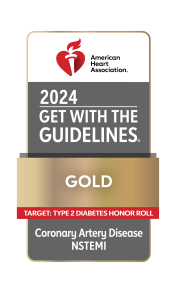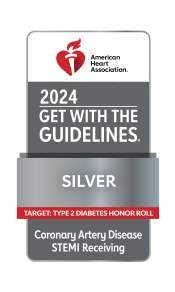Pacemakers and Defibrillators
Implantable devices can send a signal to the heart when it is beating slowly or irregularly (pacemaker) or an electrical shock when it is beating rapidly or erratically (implantable cardioverter defibrillator or ICD).
UM Baltimore Washington Heart Associates specializes in implanting and monitoring pacemakers and defibrillators. We offer the latest defibrillators for the treatment of congestive heart failure, as well as the specialized bundle of His pacing, which closely mimics the normal conduction of the electrical signal through the heart. We also offer remote home monitoring of defibrillators.
Heading the department with more than 25 years of experience, Bassim Badro, MD and a specially trained nurse work together to assure that your device is operating properly.
Implantable Devices
Pacemaker
Pacemakers allow the patient's heart to beat on its own but keep the heartbeat from falling below a preset rate. A permanent pacemaker is a self-contained device that is surgically implanted in a pocket under the patient's skin at the chest. One or two wires are placed in the vein at the top of the chest. After the procedure, the patient stays overnight in the hospital. When going home, it's best to wear a button up shirt because the patient will have limited movement of the arm on the side the pacemaker was planted until the staples are removed. Your physician will discuss with you further about the amount of movement that is allowed.
Cardioversion
Cardioversion is a brief procedure where an electrical shock is delivered to the heart to change an abnormal heart rhythm back to normal. Most elective or "non-emergency" cardioversions are performed to treat atrial fibrillation, also known as atrial flutter, a benign heart rhythm disturbance originating in the upper chambers (atria) of the heart.
External cardioversion is performed with a defibrillator, either in an emergency situation or as a scheduled treatment for arrhythmia.
Internal Cardiac Defibrillator (ICD) Insertion
Internal cardioversion is delivered by an implantable cardioverter defibrillator (ICD). ICDs are used to treat arrhythmias in the lower heart chamber (ventricle), such as ventricular tachyarrhythmia or fibrillation. These arrhythmias can cause sudden cardiac death (SCD) because of the dangerously fast heart rate.
An implantable cardioverter defibrillator is used in patients at risk for continual increased heart rate (tachycardia). An ICD may be recommended if a patient has had a ventricular arrhythmia, a heart attack, survived a sudden cardiac arrest, has a congenital heart disease or other underlying conditions that could cause sudden cardiac arrest. The device is connected to leads positioned inside the heart or on its surface that connect to a generator that is about the size of a wallet. The leads deliver electrical shocks, sense the cardiac rhythm and sometimes pace the heart, as needed. The leads can be installed through blood vessels, eliminating the need for open chest surgery. After the procedure the patient stays in the hospital overnight.
Newer devices are smaller and have simpler lead systems, which can be installed through blood vessels. This eliminates the need for open chest surgery. Depending on your arrhythmia, you may be able to use a smaller device.
Contact Us
To schedule an appointment or for more information, please call 410-768-0919 or 410-760-5100.
- Testing is available Monday–Friday.




